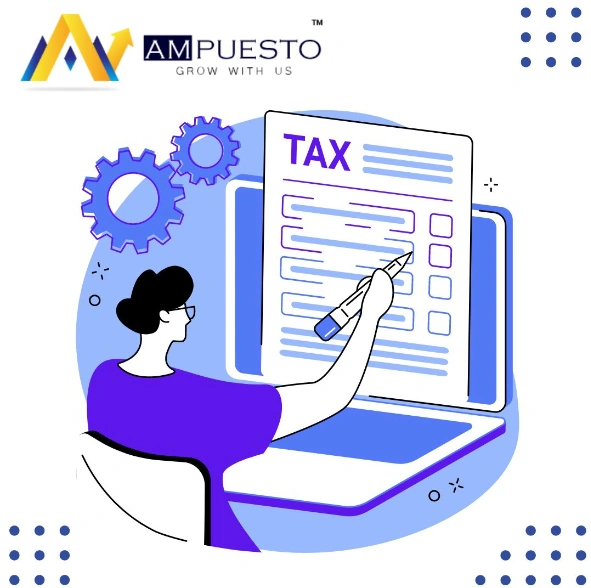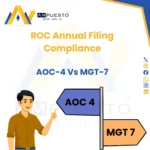Even if one’s income is not taxable, filing income tax returns is a necessary obligation for everyone. No matter your income level, even though it may initially seem needless, filing income tax returns is imperative for several compelling reasons. The main justifications for filing income tax returns, even if your income is not taxable, will be thoroughly discussed in this essay.
Tax Credit and Benefits Eligibility:
Even if your income is not taxable, filing income tax returns still allows you to find out if you qualify for any tax credits or benefits. Many tax credits are refundable, which means you can get a refund of the excess amount if your tax due is greater than your credit. You lose the chance to apply for these credits and advantages if your tax returns are not filed.
You may also be eligible for additional tax benefits and credits, including the Child Tax Credit, Child and Dependent Care Credit, Education Credits, and the Premium Tax Credit for health insurance. Assessing your eligibility for these programs and claiming the benefits you are due are made possible by filing your tax returns.
The Earned Income Tax Credit (EITC), a refundable credit intended to help low-to-moderate-income people and families, is one famous example. You can still be qualified for the EITC if you meet certain requirements even if your income is below the taxable threshold. You must file a tax return to ascertain your eligibility and collect this beneficial credit, which can greatly improve your financial situation.
Opportunities to Request Refunds:
The possibility of receiving refunds is one of the main justifications for filing income tax returns, regardless of your taxable income. While it’s possible that your income isn’t taxed, there are some circumstances where taxes may have been deducted from your pay during the course of the year. When you have your taxes withheld from your paycheck by your employer, this usually occurs.
The tax authorities can determine whether you are qualified for a refund by using the information you submit in your filed income tax returns, which you can do by filing them.
Supporting Documentation for Other Applications:
Beyond the world of taxes, tax returns are essential paperwork for many more applications and procedures. Tax returns are frequently requested to evaluate your financial stability when you apply for loans, mortgages, financial help, or government assistance programs.
Setting Up a Compliance Record:
Even if your income is not taxable, filing income tax returns helps create a record of your adherence to the law. There are several reasons why this is significant. First of all, it shows that you are committed to upholding the law and performing your civic duty. Financial institutions, potential employers, and other parties who may need confirmation of your financial responsibility may look favorably upon a history of compliance with tax filing.
Additionally, keeping a record of income tax returns might be useful for handling future tax issues. An easier transition will be made possible, for instance, if your financial condition changes in the future and you become eligible for taxable income. It gives a historical perspective and makes it possible to calculate taxes in the future with accuracy.
Compliance with Legal Requirements:
In many jurisdictions, regardless of your income level, filing tax returns is a legal requirement. No of whether they owe taxes or not, filing tax returns is required by the tax rules of the majority of nations. Penalties, fines, and legal repercussions could result from not adhering to these regulations.
Even if your income is not taxable, you still have a legal obligation to file tax returns, which helps you stay out of trouble. Maintaining a responsible and law-compliant financial profile as well as abiding by your jurisdiction’s tax regulations are crucial.
For individuals in India, there is a list of Income Tax Return (ITR) forms beginning with ITR 1:
ITR 1 (Sahaj): This form is to file tax returns for residents who earn up to Rs. 50 lakh in total income from salaries, one residential property, and other sources (not including lottery or racing prizes).
ITR 2: The Hindu Undivided Families (HUFs) and individuals who do not have a company or profession should fill out this form. If an individual or HUF earns more than Rs. 5,000 from agriculture, capital gains, overseas assets, or income, or receives income from more than one housing property, it may be subject to this tax.
ITR 3: The Hindu Undivided Families (HUFs) and individuals who do not have a company or profession should fill out this form. If an individual or HUF earns more than Rs 5,000 from agriculture, capital gains, overseas assets, or income, or receives income from more than one housing property, it may be subject to this tax.
ITR 4 (Sugam): Individuals, HUFs, and firms (other than LLPs) who get income from a presumed business or profession are required to complete this form.
ITR 5: Limited Liability Partnerships (LLPs), Associations of Persons (AOPs), Bodies of Individuals (BOIs), and artificial juridical persons, as well as individuals filing returns on behalf of other individuals, are all permitted to use this form.
ITR 6: Companies who are not requesting an exemption under section 11 (charitable/religious purposes) should use this form to file tax returns.
ITR 7: This form is for everyone, including businesses, who must provide a return by Sections 139(4A), 139(4B), 139(4C), and 139(4D) (Trusts, political parties, institutions, colleges, etc.).
These are the primary ITR forms that are utilized in India by various taxpayer categories. Depending on the type of income, business operations, and other characteristics unique to the taxpayer, the proper ITR form must be chosen.









